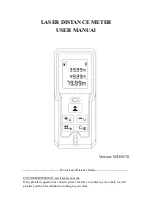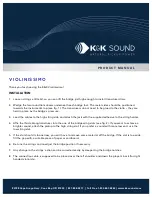
35
c) Resistance measurement
Make sure that the circuit components, circuits and components to be measured or any other
measuring objects are voltage-free and discharged.
Proceed as follows to measure resistance:
- Turn the rotary switch to the measuring range Ω. The small current values beneath
the measuring ranges indicate the measuring current.
- Connect the black test lead to the COM socket (6) and the red test lead to the VΩ
socket (7).
- Zero the multimeter using the adjustment screw (3).
- Make sure that the “Vrms/Vp-p” button (9) is not pressed.
- Connect both test leads and wait until the scale indicator has stabilized. The
display should show a value of approx. 0 ohm. Zero the meter to 0 ohm using the
0 ohm adjustment knob (8) in case of deviation. Always zero the multimeter when
changing measuring ranges. If a zero adjustment cannot be conducted, the micro
(AAA) batteries are in need of replacement.
- Connect the two measuring prods with the object to be measured.
- Read the measured value from the “Ω” scale. Multiply the displayed value by the measuring range to obtain the
correct reading (e.g. 100Ω (display) x10kΩ (measuring range) = 100 x 10,000 = 1MΩ (measured value).
- After measurement, turn the rotary switch to position “OFF” to turn off the multimeter.
















































